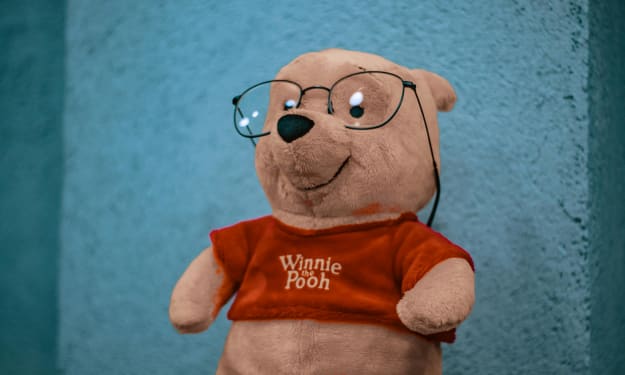The Elizabeth Bennet Effect
It is a truth universally acknowledged...

... that a single book can make a giant impression on a young 12-year old.
That was the story of my own childhood. Picture this. It was 1995. I was a young 12-year-old girl. This was the book that taught me about love and marriage.
What in the world would a 12-year-old know about love? Not a whole lot. Sure I knew plenty about love of family and love of friends. What did I know about dating or marriage? What little I knew was from watching my own family. Even fairytales gave me some idea, but it was all just perfect. In no way would any of those grown-ups around me ever argue with each other in my presence. Fairytales always ended with happily ever after for the prince and princess (unless it's Hans Christian Andersen that is).
Simply put this book was a major reason why I'm happily single to this day. You might think, but why is that a happy thing to be 40 and unmarried? Elizabeth Bennet was a fellow Elizabeth in my young mind. She's clever, loyal to her family, on the petite side (like my 5-foot self!), and one who attracted the attention of the most eligible bachelor in Meryton. What young, heterosexual female wouldn't want to be Elizabeth Bennet?

What struck me was how she had a very different mind set from everyone else around her. From the very start of the book, Mrs. Bennet's somewhat comical conversation with her husband reminds the reader (or in the case of a modern reader explains) that it is important for their daughters to marry and comfortably. Longbourne will go to a male relative rather than to Jane or her younger sisters. Ideally at least one daughter should be married before Mr. Bennet's demise. Otherwise his widow and unmarried daughters would be left dependent on charity from relatives.
Charlotte Lucas says in a later chapter:
I am not romantic, you know; I never was. I ask only a comfortable home
Charlotte's attitude falls in line in a more serious, practical manner with Mrs. Bennet. Charlotte is near "spinster" status and Mr. Collins's marriage proposal is the perfect opportunity to secure herself a comfortable, stable life. Meanwhile Elizabeth's response?
She had always felt that Charlotte’s opinion of matrimony was not exactly like her own, but she could not have supposed it possible that, when called into action, she would have sacrificed every better feeling to worldly advantage.
Elizabeth wouldn't settle for just the promise of comfort and financial stability. She wanted to marry a man who she could respect and love. It wouldn't be too surprising she develops this notion when she's had a front row seat to her own parents' marriage.
Her father is more intelligent than her mother. On a regular basis, he demonstrates his lack of respect for her. He isn't abusive or physically cruel to his wife. However he does make fun of his wife and only seeks his own personal comforts rather than put more effort into prevent a more serious situation. We see this later when Lydia elopes with Wickham. He ignores Elizabeth's warning about allowing Lydia to go off without at least another sister with her. No doubt Elizabeth wouldn't want a husband who ignores her when she shares concerns with him.
The desire for a husband who she could love results in her rejecting two marriage proposals. Mr. Collins is a pompous, people pleaser. However objectively speaking he's a perfectly good potential husband. He is a clergyman, which is a respectable career and indicates he had higher education. (A large percentage of the clergy studied at Oxford or Cambridge.) He also has a position serving at Hunsford, which is a village near Rosings Park. He's also the heir to Longbourne. All of these factors are why the practical Charlotte accepts his proposal and why Mrs. Bennet berates Elizabeth for rejecting him. I have little doubt Elizabeth is grateful her mother never found out about Mr. Darcy's first proposal.
All of these things made the young, Elizabeth Lew sit up and nod her head. Yes. It is important to marry only someone I could have an equal relationship with. I wouldn't want a selfish husband who ignores me and problems around us (Mr. Bennet). I wouldn't want to marry a man who I think is foolish, dull, and arrogant (Mr. Collins). And yet, Mr. Darcy brings something different to the table.
Mr. Darcy is a proud arrogant man. We shouldn't like him. I certainly wasn't impressed with him any more than the fictional Elizabeth was. Like Mr. Collins, Mr. Darcy is the #1 ideal marriage candidate in this book. He's the wealthiest bachelor in the story. He's the owner of a large, prosperous estate. He might not be an aristocrat, but he's clearly related to nobility with an aunt named Lady Catherine DeBourgh and an unnamed uncle who is an earl. He is also, unlike Mr. Collins, a clearly intelligent man. But his pride! His arrogance! His selfish disdain for the feelings of others! And yet... Fictional Elizabeth and young Real Elizabeth were wrong.
What makes Elizabeth so relatable is the fact she's flawed and capable of change. She's not perfect and makes mistake just as much as I do. She's confronted with the simple fact: she's allowed a hit on her pride cloud her discernment. Mr. Darcy's unflattering comments about her caused her to judge him as a stuck-up rich man. She fails to recognize he was interested in her! She never notices his awkward attempts at getting to know her or spend time with her. If this wonderful heroine can misjudge people, so could I.
By the time, I got to the end of the book it became clear that Elizabeth Bennet got something 100% right. I shouldn't get married just to "get settled." I shouldn't marry someone just because people expect it of me. I shouldn't get married just to avoid being alone or a "loser." I shouldn't marry someone just because they show me interest. I shouldn't lower my standards to marry someone who I can't respect and won't respect me. The misery of the soul wouldn't be worth a house and a second income.
About the Creator
Elizabeth Lew
By day, I'm a data analyst. By night, I want to write and podcast. I dream of that day when I can throw off the shackles of 9-5 to produce content people actually want to consumer





Comments (1)
This is so amazing what are you waiting for join my friends and read what I have prepared for you